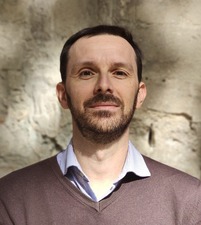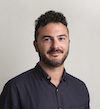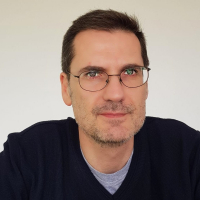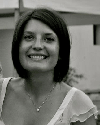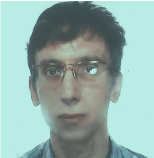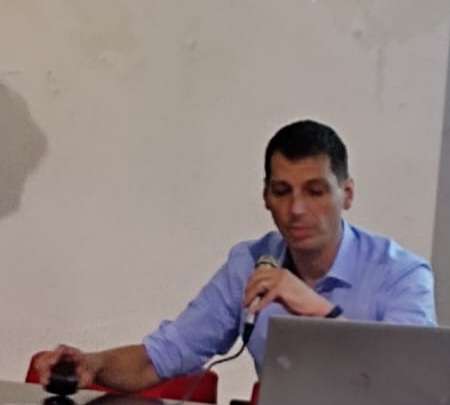Studying at the University of Verona
Here you can find information on the organisational aspects of the Programme, lecture timetables, learning activities and useful contact details for your time at the University, from enrolment to graduation.
Academic calendar
The academic calendar shows the deadlines and scheduled events that are relevant to students, teaching and technical-administrative staff of the University. Public holidays and University closures are also indicated. The academic year normally begins on 1 October each year and ends on 30 September of the following year.
Course calendar
The Academic Calendar sets out the degree programme lecture and exam timetables, as well as the relevant university closure dates..
| Period | From | To |
|---|---|---|
| 1 A | Sep 26, 2022 | Nov 5, 2022 |
| 1 B | Nov 14, 2022 | Dec 22, 2022 |
| 2 A | Feb 13, 2023 | Apr 6, 2023 |
| 2 B | Apr 12, 2023 | May 27, 2023 |
| Session | From | To |
|---|---|---|
| Sessione invernale | Jan 9, 2023 | Feb 11, 2023 |
| Sessione estiva | Jun 5, 2023 | Jul 29, 2023 |
| Sessione autunnale | Aug 28, 2023 | Sep 23, 2023 |
| Session | From | To |
|---|---|---|
| Sessione straordinaria (a.a. 2021/22) | Mar 31, 2023 | Apr 6, 2023 |
| Sessione estiva | Jul 10, 2023 | Jul 15, 2023 |
| Sessione autunnale | Nov 6, 2023 | Nov 11, 2023 |
| Sessione straordinaria | Apr 2, 2024 | Apr 8, 2024 |
| Period | From | To |
|---|---|---|
| Chiusura edifici | Oct 31, 2022 | Oct 31, 2022 |
| Festa di Ognissanti | Nov 1, 2022 | Nov 1, 2022 |
| Festa dell'Immacolata | Dec 8, 2022 | Dec 8, 2022 |
| Chiusura edifici | Dec 9, 2022 | Dec 10, 2022 |
| Vacanze di Natale | Dec 23, 2022 | Jan 7, 2023 |
| Vacanze di Pasqua | Apr 7, 2023 | Apr 10, 2023 |
| Festa della Liberazione | Apr 25, 2023 | Apr 25, 2023 |
| Festa del lavoro | May 1, 2023 | May 1, 2023 |
| Festa del Santo Patrono | May 21, 2023 | May 21, 2023 |
| Festa della Repubblica | Jun 2, 2023 | Jun 2, 2023 |
| Chiusura estiva | Aug 13, 2023 | Aug 19, 2023 |
Exam calendar
Exam dates and rounds are managed by the relevant Culture and Civilisation Teaching and Student Services Unit.
To view all the exam sessions available, please use the Exam dashboard on ESSE3.
If you forgot your login details or have problems logging in, please contact the relevant IT HelpDesk, or check the login details recovery web page.
Should you have any doubts or questions, please check the Enrollment FAQs
Academic staff
 luca.bochicchio@univr.it
luca.bochicchio@univr.it
 monica.cristini@univr.it
monica.cristini@univr.it
 dario.donetti@univr.it
dario.donetti@univr.it
 elisa.lerco@univr.it
elisa.lerco@univr.it
 pieralberto.porcedducilione@univr.it; pierre_pordd@yahoo.it
pieralberto.porcedducilione@univr.it; pierre_pordd@yahoo.it
 045 8028732
045 8028732
 alberto.scandola@univr.it
alberto.scandola@univr.it
Study Plan
The Study Plan includes all modules, teaching and learning activities that each student will need to undertake during their time at the University.
Please select your Study Plan based on your enrollment year.
1° Year
| Modules | Credits | TAF | SSD |
|---|
2° Year activated in the A.Y. 2023/2024
| Modules | Credits | TAF | SSD |
|---|
| Modules | Credits | TAF | SSD |
|---|
| Modules | Credits | TAF | SSD |
|---|
| Modules | Credits | TAF | SSD |
|---|
Legend | Type of training activity (TTA)
TAF (Type of Educational Activity) All courses and activities are classified into different types of educational activities, indicated by a letter.
History of Architecture (m) (2023/2024)
Teaching code
4S02329
Teacher
Coordinator
Credits
6
Language
Italian
Scientific Disciplinary Sector (SSD)
ICAR/18 - HISTORY OF ARCHITECTURE
Period
CuCi 1 A dal Sep 25, 2023 al Nov 4, 2023.
Courses Single
Authorized
Learning objectives
The course aims to address a certain period of the history of architecture, focusing on a specific topic of great importance for modern and contemporary architectural culture. In particolar: 1) acquire specific skills for reading the architectural artefact: interpreting data, recognizing the specificity of architectural language, contextualizing the building by adopting appropriate socio-cultural coordinates, using the bibliography appropriately and recognizing the transformations of the building (restorations, functional changes etc..); 2) deepen the knowledge related to the history of European architecture, especially in the contemporary era, recognizing the interaction between the events of individual architects and the development of Movements and Avant-gardes, in relation to the transformation of cities.
Prerequisites and basic notions
No prior requirements are necessary, but students are encouraged to attend the course after acquiring fundamental notions in the History of Medieval Architecture, History of Early Modern Architecture, and History of Art Criticism
Program
The course will address the so-called ‘questione della lingua’ in architecture, or the formulation and canonization of classicist language, between the fifteenth and sixteenth century. These classes will allow to decipher the lexicon and syntax of the architectural orders, to interpret meanings that can be associated with specific orations after the antique, to read the political messages or cultural conflicts implied by the different declinations of the predominant style of Italy, Europe and the New World until the advent of modernism. The apparent normativity of classicism will thus reveal phenomena of innovation and resistance, local identity and universalism, transition and conservation that cross the architecture of the early modern age. Based on the theoretical production of the time, the lectures will focus on exemplary monuments or on the production of individual authors, alternating with seminars for the discussion of weekly readings and, in the second part of the course, individual presentations by students on relevant case studies, which will count for the final evaluation.
Bibliography
Didactic methods
the course will be structured according to the following sequence of topics, discussions and presentations: 1) "Introduction: the problem of representation in architecture"; 2) discussion of the texts: E. Gombrich, 'The sense of order', 1984 (excerpt) 3) “Innovation: Brunelleschi at the Old Sacristy”; 4) discussion of the texts: M. Trachtenberg, 'Michelozzo and the Pazzi chapel', 1997; 5) “Transition: Leon Battista Alberti and the renewal of Santa Maria Novella”; 6) discussion of the texts: R. Wittkower, 'Alberti in front of ancient architecture', 1964; 7) individual presentations; 8) "Identity: rustication and the Florentine palace"; 9) discussion of the texts: G. Belli, 'Shape and naturalness in the Florentine rustication of the fifteenth century', 1996; 10) individual presentations; 11) "Language: the classical orders and the Roman palace"; 12) discussion of the texts: C. Frommel, 'Raphael's palaces: how people lived and lived in Rome in the early sixteenth century', 2003; 13) individual presentations; 14) “Drawing: the facade of San Lorenzo in Florence”; 15) discussion of the texts: M. Tafuri, 'Renaissance Research', 1992 (excerpt); 16) individual presentations; 17) "Abstraction: Palladio in Venice"; 18) discussion of the texts: James Ackerman, 'Palladio', 1972 (excerpt) Reference text: John Summerson, 'The classical language of architecture', Einaudi, Turin 2010.
Learning assessment procedures
The final exam will be oral, with reference to the examples shown by the instructor and the literature discussed in class.
Evaluation criteria
The exam will verify the knowledge of the topics covered by lectures and bibliography. Students will mastery of the course’s critical contents, or to be able to interpret in an analytical way the visual language used by the architecture of Italian and European classicism.
Criteria for the composition of the final grade
The oral exam and the individual presentation on a case study (lasting 8-10 minutes) offered during the course will contribute in equal measure to the evaluation, expressed out of thirty. active participation in the weekly discussions will be considered positively as well. Students who will not be able to actively attend the course and contribute will write a short essay on a similar topic (illustrated and with footnotes, minimum length of 10,000 characters). The text - in PDF format, identified by name, surname and registration number - must be delivered by e-mail, at least two weeks before the date chosen for the oral exam.
Exam language
Italiano
Type D and Type F activities
| years | Modules | TAF | Teacher | |
|---|---|---|---|---|
| 2° | Music in History | F |
Vincenzo Borghetti
(Coordinator)
|
|
| 1° 2° | FAI Activities | F |
Edoardo Bianchi
(Coordinator)
|
|
| 1° 2° | Worlds of Fashion: Themes and Actors | F |
Alessandra Zamperini
(Coordinator)
|
|
| years | Modules | TAF | Teacher | |
|---|---|---|---|---|
| 2° | Music in History | F |
Vincenzo Borghetti
(Coordinator)
|
|
| 1° 2° | FAI Activities | F |
Edoardo Bianchi
(Coordinator)
|
|
| 1° 2° | Worlds of Fashion: Themes and Actors | F |
Alessandra Zamperini
(Coordinator)
|
|
| years | Modules | TAF | Teacher | |
|---|---|---|---|---|
| 1° | That scandalous can: Piero Manzoni’s Artist’s Shit (1961). International conference | F |
Luca Bochicchio
(Coordinator)
|
|
| 1° | Sigecweb computer system introduction course | F |
Ada Gabucci
(Coordinator)
|
|
| 1° | Graphic and photographic documentation of the archaeological artefacts: from traditional drawings to digital sources | F |
Diana Sergeeva Dobreva
(Coordinator)
|
|
| 1° | Workshop on the History of Manuscript Illumination | F |
Margherita Zibordi
(Coordinator)
|
|
| 1° | La collezione AGI Verona in Santa Marta e altri sedi universitarie a Verona | F |
Valerio Terraroli
(Coordinator)
|
|
| 1° | Works on display, 2023. Alessandro Turchi known as Orbetto, painter on copper and blackboard: the Madonna and Child with Saints Peter the Martyr, Zeno and Tuscany. | F |
Giorgio Fossaluzza
(Coordinator)
|
|
| 1° | Web for Cultural Heritage | F |
Piergiovanna Grossi
(Coordinator)
|
|
| 1° 2° | FAI Activities | F |
Edoardo Bianchi
(Coordinator)
|
|
| years | Modules | TAF | Teacher | |
|---|---|---|---|---|
| 1° | Sigecweb computer system introduction course | F |
Ada Gabucci
(Coordinator)
|
|
| 1° | Graphic and photographic documentation of the archaeological artefacts: from traditional drawings to digital sources | F |
Diana Sergeeva Dobreva
(Coordinator)
|
|
| 1° | Workshop on the History of Manuscript Illumination | F |
Margherita Zibordi
(Coordinator)
|
|
| 1° | La collezione AGI Verona in Santa Marta e altri sedi universitarie a Verona | F |
Valerio Terraroli
(Coordinator)
|
|
| 1° | Web for Cultural Heritage | F |
Piergiovanna Grossi
(Coordinator)
|
|
| 1° 2° | FAI Activities | F |
Edoardo Bianchi
(Coordinator)
|
|
| years | Modules | TAF | Teacher | |
|---|---|---|---|---|
| 1° | Conference Civici Museum Verona | F |
Tiziana Franco
(Coordinator)
|
|
| 1° | Future's Festival | F |
Alessandra Zangrandi
(Coordinator)
|
|
| 1° 2° | cultural Thursday ISSR Verona | F |
Tiziana Franco
(Coordinator)
|
|
| 1° 2° | The house of Erizzo and the image of aristrocracy in Venice | F |
Alessandra Zamperini
(Coordinator)
|
|
Career prospects
Module/Programme news
News for students
There you will find information, resources and services useful during your time at the University (Student’s exam record, your study plan on ESSE3, Distance Learning courses, university email account, office forms, administrative procedures, etc.). You can log into MyUnivr with your GIA login details: only in this way will you be able to receive notification of all the notices from your teachers and your secretariat via email and soon also via the Univr app.
Double degree
The University of Verona, through a network of agreements with foreign universities, offers international courses that enable students to gain a Double/Joint degree at the time of graduation. Indeed, students enrolled in a Double/Joint degree programme will be able to obtain both the degree of the University of Verona and the degree issued by the Partner University abroad - where they are expected to attend part of the programme -, in the time it normally takes to gain a common Master’s degree. The institutions concerned shall ensure that both degrees are recognised in the two countries.
Places on these programmes are limited, and admissions and any applicable grants are subject to applicants being selected in a specific Call for applications.
The latest Call for applications for Double/Joint Degrees at the University of Verona is available now!
Student login and resources
Prova finale
Alla prova finale per il conseguimento della laurea magistrale in Storia delle arti sono assegnati 24 cfu. La prova finale consiste nella preparazione e nella discussione di una tesi di laurea magistrale, di non meno di 120 pagine scritte, elaborata in modo originale dallo studente sotto la guida di un docente relatore; è prevista la figura del correlatore. L'argomento della prova finale deve riguardare uno degli insegnamenti del piano di studi. I laureati devono saper dimostrare con il lavoro di tesi di aver applicato le loro conoscenze, di possedere capacità di comprensione e abilità nella risoluzione di problemi e nell'affrontare tematiche nuove in modo autonomo e in un contesto di ricerca e di progettazione originale. La discussione della prova finale ha luogo davanti a una Commissione composta secondo le relative norme del Regolamento didattico di Ateneo. Per la prova finale è previsto un massimo di 7 punti. Per l'attribuzione del punteggio la commissione si attiene ai seguenti criteri: 1) originalità dell'elaborato; 2) efficacia e coerenza nelle argomentazioni; 3) qualità della scrittura; 4) capacità dello studente di illustrare e discutere adeguatamente il suo lavoro davanti alla commissione. La votazione è espressa in centodecimi, a cui la Commissione può aggiungere, in casi di eccellenza, la distinzione della lode.
Adempimenti amministrativi e scadenze domanda di laurea
Calendari discussione e proclamazione di laurea

